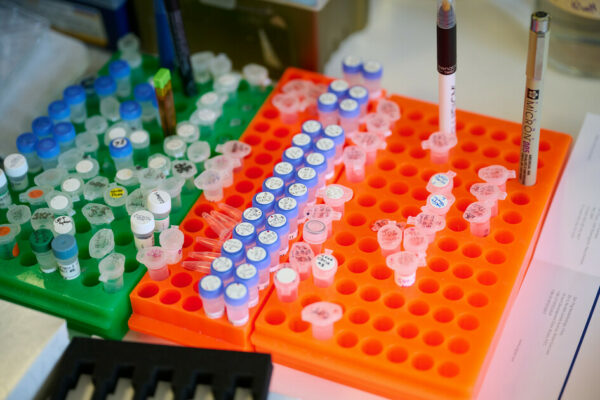We fund pioneering research for better treatments to improve people’s lives today, and to transform those of future generations.
Filter results
Research condition
Research type
Geographic Location
Understanding how the brain is involved in Duchenne and Becker muscular dystrophy
Dr Hermien Kan will use brain scans, assessments of brain function and behavioural data to understand more about how Duchenne and Becker muscular dystrophy impacts how the brain works.
Improving accessibility of bone density scanning for wheelchair users living with muscle wasting conditions
Dr Jarod Wong will lead a study involving people living with muscle wasting conditions and healthcare workers to improve the accessibility and performance of bone density scanning to make monitoring weak bones more straightforward.
Understanding how Duchenne muscular dystrophy affects brain function
Professor Patrizia Ferretti and her team will look at brain cells from people with Duchenne muscular dystrophy (DMD) to improve our understanding of how brain function is affected in people with this condition.
Developing a gene editing technique as a potential treatment for Duchenne muscular dystrophy
Professor Linda Popplewell and her PhD student at Teesside University will develop a new type of gene editing therapy for people living with Duchenne muscular dystrophy (DMD). This potential therapy could be suitable for many people with DMD unlike other potential treatments that target specific regions of the DMD gene.
Using MRI to monitor the progression of Duchenne muscular dystrophy
In this project, Professor Chris Clark from University College London will be using an MRI technique called the Dixon method to measure the progression of Duchenne muscular dystrophy (DMD) by looking at the water and fat content in the muscles of people with DMD.
NorthStar Programme
The NorthStar programme is the world’s largest natural history study of boys and men with Duchenne muscular dystrophy (DMD) and a clinical network of UK-wide healthcare professionals focusing on the best clinical management of DMD.
